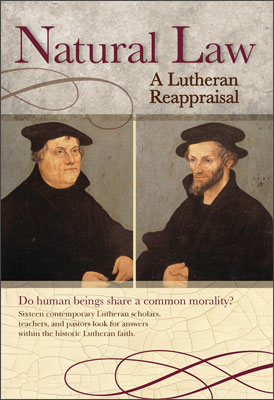Ephesians 3:14-19:
For this reason I bow my knees before the Father, from whom all fatherhood is named in heaven and on earth, that according to the riches of his glory he may grant you to be strengthened with power through his Spirit in your inner being, so that Christ may live in your hearts through faith— that you, having root and foundation in love, may have strength to understand with all the saints what is the breadth and length and height and depth, and to know the love of Christ that surpasses knowledge, that you may be filled with all the fullness of God.
Happy Fathers' Day!
Fathers are a special gift from God. They are given as a reflection of His very nature as God the Father. God's nature is shown in the first article of the creed as we learn it in the Small Catechism. God is the creator, provider, defender and head of all creation. In the second article we also see the character of God as Christ relates to the church, giving up His life for His bride and adorning her with the beauty of His righteousness.
God designed our society also to be a reflection of His character when he created us in families. He is the Father from whom all fatherhood is named. He created us in families with fathers as the head of each family. The fathers are to do for their families the same sort of work that we see in the first and second articles of the creed: begetting children and providing for them; loving wife and making her beautiful; loving, disciplining and protecting children; and being the leader of the family who takes responsibility for the family – even for the wrongs that are not his direct fault – and being the one who heals the wounds and makes the family whole.
Thus Luther praises the estate of fathers in the Large Catechism:
You shall honor your father and your mother that it may be well with you and you may live long upon the earth.
105 To the position of fatherhood and motherhood God has given special distinction above all positions that are beneath it: He does not simply command us to love our parents, but to honor them. Regarding our brothers, sisters, and neighbors in general, He commands nothing more than that we love them [Matthew 22:39; 1 John 3:14]. In this way He separates and distinguishes father and mother from all other persons upon earth and places them at His side. 106 For it is a far higher thing to honor someone than to love someone, because honor includes not only love, but also modesty, humility, and submission to a majesty hidden in them. 107 Honor requires not only that parents be addressed kindly and with reverence, but also that, both in the heart and with the body, we demonstrate that we value them very highly, and that, next to God, we regard them as the very highest. For someone we honor from the heart we must also truly regard as high and great. 108 We must, therefore, impress this truth upon the young [Deuteronomy 6:7] that they should think of their parents as standing in God’s place. They should remember that however lowly, poor, frail, and strange their parents may be, nevertheless, they are the father and the mother given to them by God. Parents are not to be deprived of their honor because of their conduct or their failings. Therefore, we are not to consider who they are or how they may be, but the will of God, who has created and ordained parenthood. In other respects people are, indeed, all equal in God’s eyes. But among humans there must necessarily be this inequality and ordered difference. Therefore, God commands this order to be kept, that you obey me as your father [Matthew 5:48], and that I have the supremacy.
[Luther's Large Catechism, Part 1; Concordia: The Lutheran Confessions, ed. Paul Timothy McCain (St. Louis, MO: Concordia Publishing House, 2005), 371]
But fathers, unfortunately, do not always live up to God's design. As fallen sinners at the heads of families of fallen sinners, fathers do not always reflect the glory of God. Indeed, it is so bad that we as a society have lost even the ideal to which we are to aspire. It is no mere coincidence that fatherhood (or especially patriarchy) is represented so negatively in our culture today.
Watch nearly any sit-com and see how fathers are portrayed: they are hapless buffoons, selfish, incompetent, fat and lazy, unfashionable, stupid and, above all, unnecessary. The world has no use for manly fathers because it has no desire to be under the reign of a Fatherly God. You can be sure that the attacks that we see on marriage and family are also really rebellion against the Father from whom all fatherhood is named.
Although it runs against the tide of the culture, we must return to God's design, plan and ideal for fatherhood. It is not a bygone cultural relic. It is God's order in the world. So, if you father was not a good father, honor him anyway as Luther instructs above. Where your father did well and showed in his life the character of God, thank him and praise God for him. Where fathers are maligned, we must stand up for them. Where we who are fathers fail to lead and fall into sin, we must repent for the way we have maligned the Father's good name. And God the Father, who loves us and sent His Son for us also forgives us, and pulls us together in His family.
Happy Fathers' Day!
The Rev. Juan Palm is pastor of Trinity Lutheran Church in North Morristown, Minnesota.




